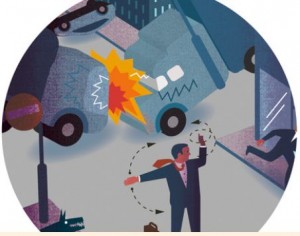 I sat bolt upright reading Simon Caulkin’s perspective (FT.COM/Business Education 3 Dec 2012). He explains the 2008 crash and what is going wrong: the rules and conventions of management taught in board rooms, dealng rooms, also in Harvard and business schools throughout the world have turned out since the 1980s to be catastrophically wrong: “They got every basic task wrong, misincentivising people, misallocating resources and treating customers with contempt”. Now in this unending winter of austerity, I am pre-occupied with a stark fact: over 50% in Southern Europe and around 25% in the industrialised countries of Northern Europe of under 25s are unemployed and in parts of the Middle East, Asia and Africa the problem is far worse. I am asking how was this “managed”. Who took their eye off the ball? Aren’t we storing up trouble? If we were “new leaders” how might we think about this? Are we still holding onto the belief from the economist Adam Smith that as long as we all pursue self-interest an “invisible hand” will solve the problem? Are individuals running on blatant self-interest really strengthening our companies and communities? A plausible stab at the costly corrosion arising from today’s individualism is: when I only work for me, I am blind to what lies beyond. When I operate as if my world is a machine I am blind to its potential as a living system made up of people who also operate like me, I set myself against others, and in a mass denial of our shared responsibility I fail to see my part when our system collapses. So in these circumstances how can we lead? Let’s first acknowledge all is not bad: life has improved for many with access to information, education, healthcare, travel, mobile communications, new products, new markets… yet tremendous advances bring challenges and a role for new leaders. We can question yesterday’s management rules, look beyond the narrow box of our organisational roles and towards the big issues that your customers care about. One of the big ones has to be: what will we do today to actively involve our young people in addressing their and our most pressing problem? Tony Page, 12 December 2012
I sat bolt upright reading Simon Caulkin’s perspective (FT.COM/Business Education 3 Dec 2012). He explains the 2008 crash and what is going wrong: the rules and conventions of management taught in board rooms, dealng rooms, also in Harvard and business schools throughout the world have turned out since the 1980s to be catastrophically wrong: “They got every basic task wrong, misincentivising people, misallocating resources and treating customers with contempt”. Now in this unending winter of austerity, I am pre-occupied with a stark fact: over 50% in Southern Europe and around 25% in the industrialised countries of Northern Europe of under 25s are unemployed and in parts of the Middle East, Asia and Africa the problem is far worse. I am asking how was this “managed”. Who took their eye off the ball? Aren’t we storing up trouble? If we were “new leaders” how might we think about this? Are we still holding onto the belief from the economist Adam Smith that as long as we all pursue self-interest an “invisible hand” will solve the problem? Are individuals running on blatant self-interest really strengthening our companies and communities? A plausible stab at the costly corrosion arising from today’s individualism is: when I only work for me, I am blind to what lies beyond. When I operate as if my world is a machine I am blind to its potential as a living system made up of people who also operate like me, I set myself against others, and in a mass denial of our shared responsibility I fail to see my part when our system collapses. So in these circumstances how can we lead? Let’s first acknowledge all is not bad: life has improved for many with access to information, education, healthcare, travel, mobile communications, new products, new markets… yet tremendous advances bring challenges and a role for new leaders. We can question yesterday’s management rules, look beyond the narrow box of our organisational roles and towards the big issues that your customers care about. One of the big ones has to be: what will we do today to actively involve our young people in addressing their and our most pressing problem? Tony Page, 12 December 2012